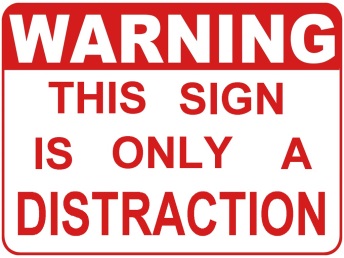In my continuing quest to find focus in an age of digital distraction, I recently interviewed Cal Newport, bestselling author of Deep Work: Rules for Focused Success in a Distracted World.
Cal’s premise is that the ability to focus for long periods of time on a meaningful and cognitively demanding task is an increasing precious and rare commodity. He calls it “deep work.” It is not an academic problem: as baby boomers with decades of hard-earned knowledge retire, entrants and nex’perts need to ramp up quickly. The biggest enemy of focus is our ubiquitous and addictive technologies. Whole teams at Facebook and Google are devoted to keeping your eyes scanning their sites. Ironically, these shops are also big advocates of meditation for their own staff.
Hummmm.
Mindfulness, meditation, and digital detox are in fashion. Even Google and Facebook engineers need to concentrate so they can design addictive apps. Many of us sense that our addiction to the constant stimulation and hit of dopamine (the reward neurotransmitter) we get from our digital devices has proven to be deeply dissatisfying at a personal and professional level. See my blog on Are You Addicted to Your Smart Phone?
In our conversation, Cal maintains this addiction is the ruin of deep concentrated knowledge work, critical thinking, productivity and invention.
As usual, the path to recovery is not easy. Here are the four “rules” Cal suggests for regaining control of your neurons, your time, your expertise, and your life.
THE FOUR RULES OF DEEP WORK
Rule #1: Work Deeply.
How do you get to be a better runner? By running. How do you get to be a deeper thinker? Block out time for deep work. If you want to become an expert at anything, set aside time to work deeply.
Repeat.
As a result of focus and practice, your dear little neurons become “well-myelinated,” thus shielded from random electrical impulses and tweets; skills become smoother and more automatic. You have learned.
Rule #2: Embrace Boredom.
Thomas Friedman, NY Times columnist and author of The World is Flat has a new book out called Thank You for Being Late. One premise of the book is that we have not evolved as quickly as our technology and we need time for reflection and assimilation. We often only get it when waiting in line or for people to show up for a meeting. That is, of course, unless we whip out our phones in the fear of being seen as a loser with nothing to do or no one to text with.
Cal suggests we use those moments to Embrace Boredom. If we don’t, we might permanently lose the capacity for extended periods of concentration.
Rule #3: Quit Social Media.
Deep Work is a manifesto against everything social media stands for.
That’s a pretty provocative position coming from a (young) successful assistant professor of computer science. Just because being on social media gives you a little benefit (“Hey, it’s Mary from high school!”) doesn’t outweigh the cost. Cal is an advocate of digital minimalism and has advice on how to do the cost-benefit calculation.
Rule #4: Drain the Shallows.
My days too often feel as if I am bitten to death by ducks. The hours can fritter away on email or small tasks or interruptions. These shallow little time-sucks will always win unless I mount a serious campaign against them. Cal suggests we schedule blocks of time for deep work and protect them. You’ll get a lot more of the important things done. Like designing a great KM program or evaluating the real value of new technologies.
If you are a KM professional, you might be feeling a bit uneasy now. Is KM helping or hurting deep work in our organizations? For more on that answer, come to APQC's 21st Annual Knowledge Management Conference. Cal is keynoting, and you can ask him yourself. Stay tuned for my next post continuing this important conversation with Cal.
To read the transcript of my interview with Cal Newport, click here.
To download the podcast of my interview with Cal Newport, click here.